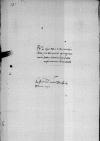Letter #1519
Ioannes DANTISCUS to Mauritius FERBERLöbau (Lubawa), 1536-07-24
| received [1536]-07-26 Manuscript sources:
Prints:
| ||||||||||||||||
Text & apparatus & commentaryPlain textText & commentaryText & apparatus
Reverendissimo in Christo patri et domino, domino
Reverendissime in Christo Pater et Domine, domine mi observandissime. Salutem et mei plurimam commendationem.
Eas, quas ill(ustrissimus) dominus
Reverendissimae D(ominationis) deditissimus filius


 BCz, 244, p. 138
BCz, 244, p. 138